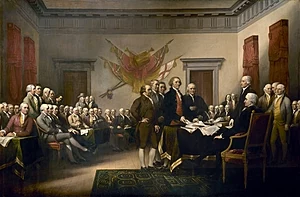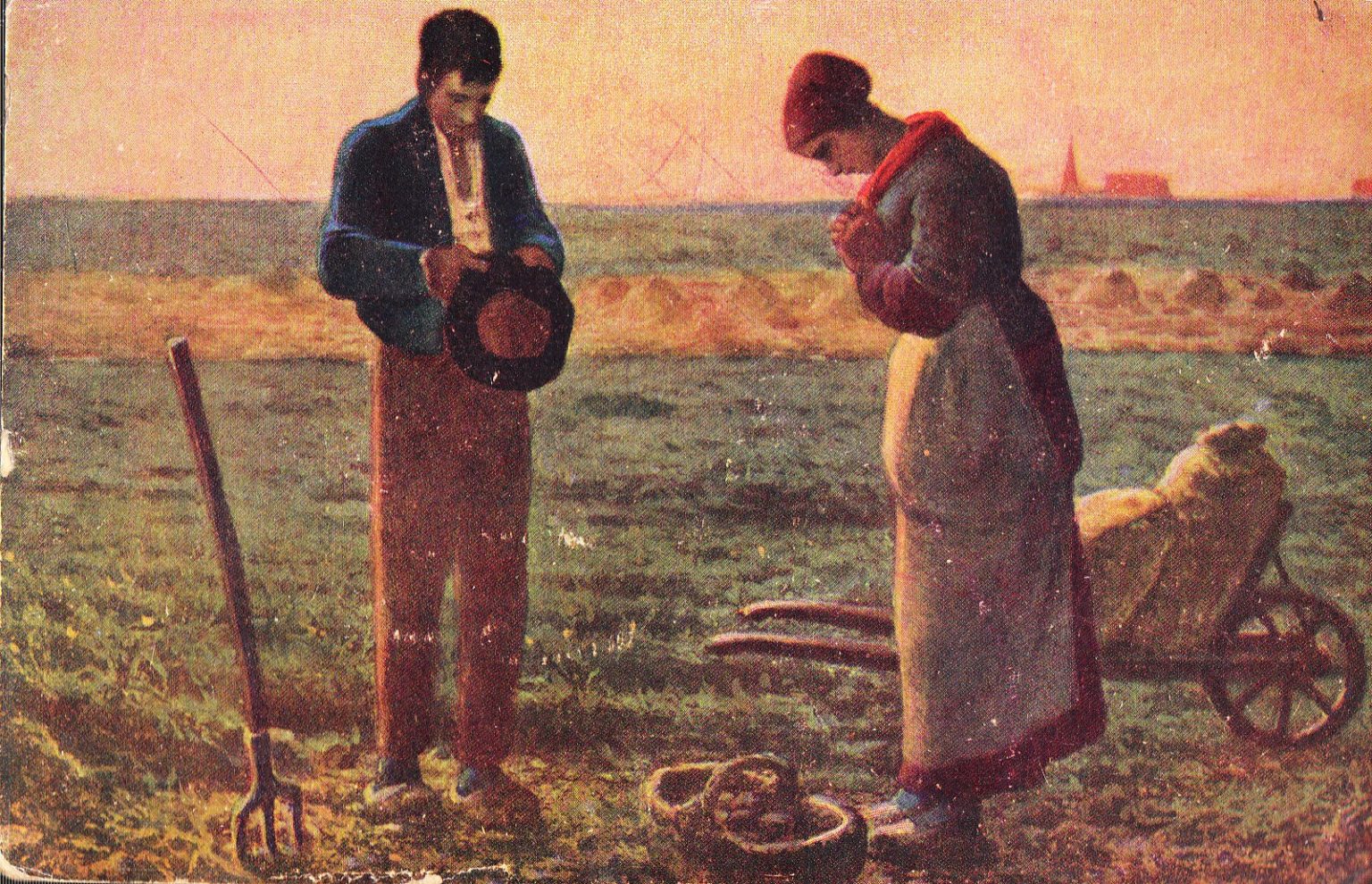The Law of Generations
Younger conservatives wanting to make a name for themselves since the rise of Donald Trump in 2016, were even seven years younger than they are today, so when I read about political dust-ups such as the one brewing between Steven Crowder (Millennial, now age 32, and only 25 when Trump stepped up to the plate) and The Daily Wire, and by extension co-founder Ben Shapiro (now age 39, also a millennial), my first thoughts goes straight back to the central issue of just how much they know about America and its own childhood, growing pains, especially its generational growing pains.
And the real politics at stake today, and more importantly, over those first 170 years before the Revolution, what was colonial America’s consistencies and its constancies that have carried America through its first two centuries? Especially the latter.
We don’t study this stuff just so we can find film roles for Mel Gibson.
In my view the modern Millennial (b1981-1996) and Generation Z (b1997-2012) know little about these things, or, much more importantly, lack that ability to look inside themselves and see torch-bearers and oath-keepers instead mere chroniclers of a new chapter of a new book or column.
A key element of any community’s survival in the natural law sense of “survival” is found here, and it is distinguished by those who write and those who are written about. That distinction is being blurred.
Worse, many (most?) don’t even seem to know that it matters.
This realization brings to mind the comment by Blaise Pascal, the 17th Century mathematician, scientists and religious philosopher (1623-1662), a genius on several accounts, but who died at age 39, ruminated (farmers call that “chewing the cud”) about spiritual classifications of people; First, the Found, then the Lost but Seeking to be Found, not knowing they were found. Then finally there are those who don’t know they were Lost. These were the most lamentable, as Pascal catalogued this last group tragically…because, not knowing they were lost, they were not seeking to be found.
We know a lot of those, don’t we folks?
But do we lament them?
For 350 years, America by its very existence, and the way we (sometimes oafishly) strutted ourselves abroad, on the world stage,
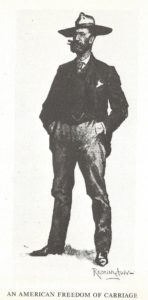
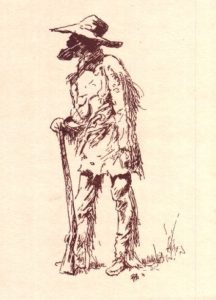
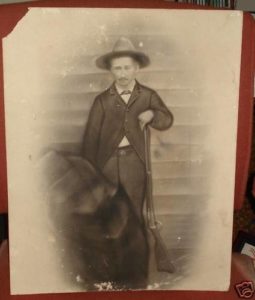

…while building this empire, we tried to finally settled on one in the late 1800’s, the so-called the Gilded Age…

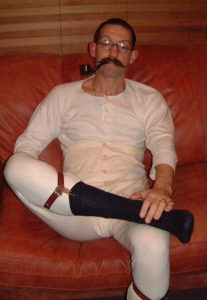
…was a source of repressed snickers among the gentler elites of the rest of the world, including our own political class at least a generation before the First World War.
The current scheme today is to replace farmers, factory workers with all but the most essential services, including petit bourgeoisie and turn all that excess labor into college-degreed bureaucracies, and let that system sort itself out with millions of men and women playing Mah Jong Tiles in their cubicles 35 of the 40 hours they have to spend in the office….not knowing this creation of a bureaucratic infrastructure was designed to neuter them.
In particular, how deep are these newer generations’ roots in studying and learning about the experiences and world views of people several levels of education and experiences beneath them (at least as they see it)? And what did they know and believe in 2015, when Trump emerged on the scene, and how much did they glean from Trump’s relationship with the “common folk” who actually carried Trump to victory in 2016?
Everyone wants to be able to glean Trump’s motives and experiences (none too well, from what I’ve seen) in virtually but almost none of the
American history tells us that relationship has defined greatness in American leadership over the centuries, especially in times of need and desperation.
So, what do these kids know about the times before their times, and how did they learn it? At dad’s knee, grandad’s? From a family Bible? A mezuzah? (Ours had several pages dedicated to family trees, and of note, would also explain why, after the Bolshevik Revolution in 1918, many Russian country folk wisely buried their family Bibles in the back yard so that some day a family might dig that up and resurrect the family history. Don’t look for that from city folk.)
Did American kids first hear about the Fourth of July from a teacher in school, or at a neighborhood town gathering at the ballpark, or a parade down Main Street? Even before they entered school? Did they ever bow their heads and thank God for the meal that was set before them? Or did they sit down for a meal with the family only every once and awhile?
Can they recite the Pledge of Allegiance from heart?
You’ve seen that little 58 page booklet given away by the Cato Institute of America’s Founding documents, The Declaration of Independence and Constitution. I wrote a moving story about reading from it to a group of Soviet college professors in Ukraine, in the winter of 1992.
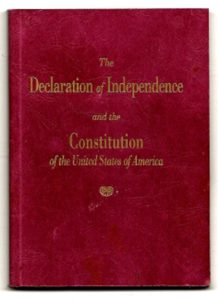
Why haven’t some of our many younger better minds come up with real little pamphlets that can be underlined and dog-eared, and carried in an inside or hip pocket?And it carries This should (or could) be the antidote to the little electronic beast that is eating away at America’s soul today.
I do know that Donald Trump growing up was subject to many of these same crossroads that I was subjected to. His mother was a strict Christian, and a working woman. Not sure how she met Donald’s dad, but was a working girl, a house servant from Scotland. His grandfather, named Drumpf, and the family’s first generation in America, was a man I’d liked to have known. Reminds me of my own grandad. (Frederick Drumpf died in the 1919 Spanish Flu outbreak, which caused Donald’s dad to have to join his grandmother in running the company.) Donald Trump didn’t drink, having lost his oldest brother to alcohol. So he didn’t spend much time chasing uplifted skirts named Stormy, or somesuch. He was (is) a genius, probably a speed reader as he was recognized as the best “contract reader” in New York. He was also known for ability to know his employee’s name, and his amiability toward them. He had a natural dislike for office “strutters”.
This little bit of information begins to allow you build a profile quite unlike what people armed with only second-third hand information like to impart about Donald Trump.
That is, if you know to ask.
I’m patting myself on the back a little here, in part because I had picked a winner with Trump, only at the time was not even sure why I had been right. Knowing Trump’s background in modern business, (I’m five months older) trained in Law, private sector HQ and-factory level labor-intensive, mass manufacturing) and also an unquenchable thirst in “how things work” in various cultures, from the Far East and the Soviet Bloc, and how things once worked from the Middle Ages forward. That’s my resume.
I even published a Kindle book about him at Amazon in 2016, just before the 2016 election, entitled Donald Trump, the Common Man and the American Theology of Liberty. According to Amazon, I never sold a copy, and the book mysteriously dropped from sight sometime later that year, but in a following article I’ll tell you how you can get a copy.
It was watching that relationship between Trump and those “common folks”, remembering that those were the only people Jesus ever bothered to preach to over 2000 years ago, that sold me on the idea that he had something none of the other candidates had, a connection with voters at every level, instead of a connection with donors.
Very few leaders in America’s history ever possessed that, (Ronald Reagan and Lincoln comes to mind, and historian Larry Schweikart recently included Calvin Coolidge, and I would include that Kansas farm boy turned general, Eisenhower.)
As for me, I haven’t wavered. I’m a few months older than Donald Trump, and while I have very little in the bank to prove I know anything about business success, I spent over 20 yrs in the third world to get a sense about what people hunger and thirst for.



